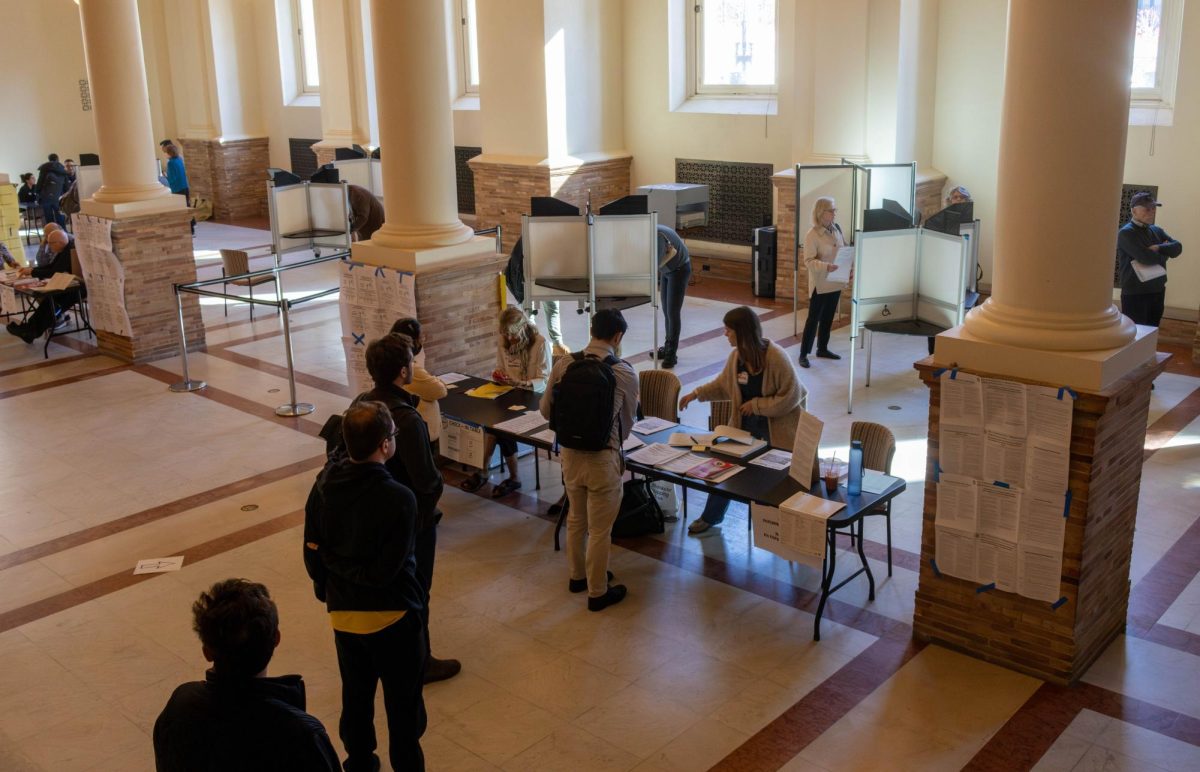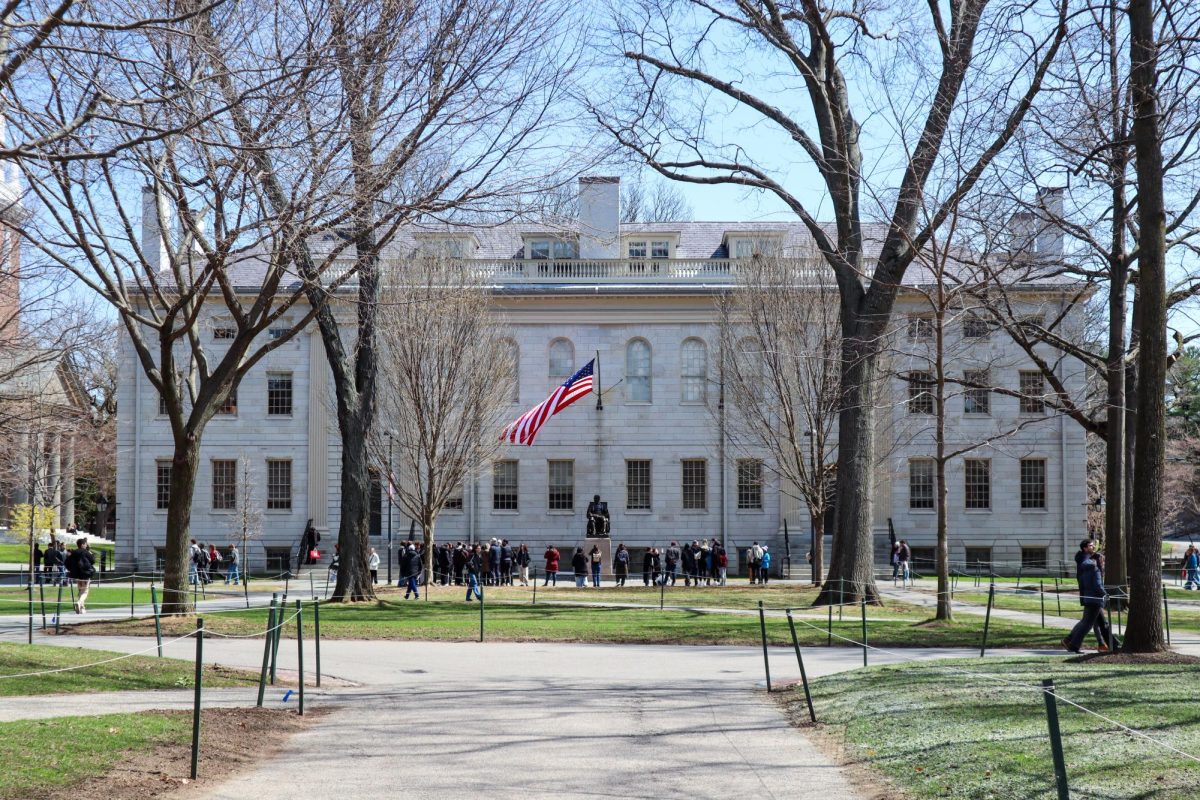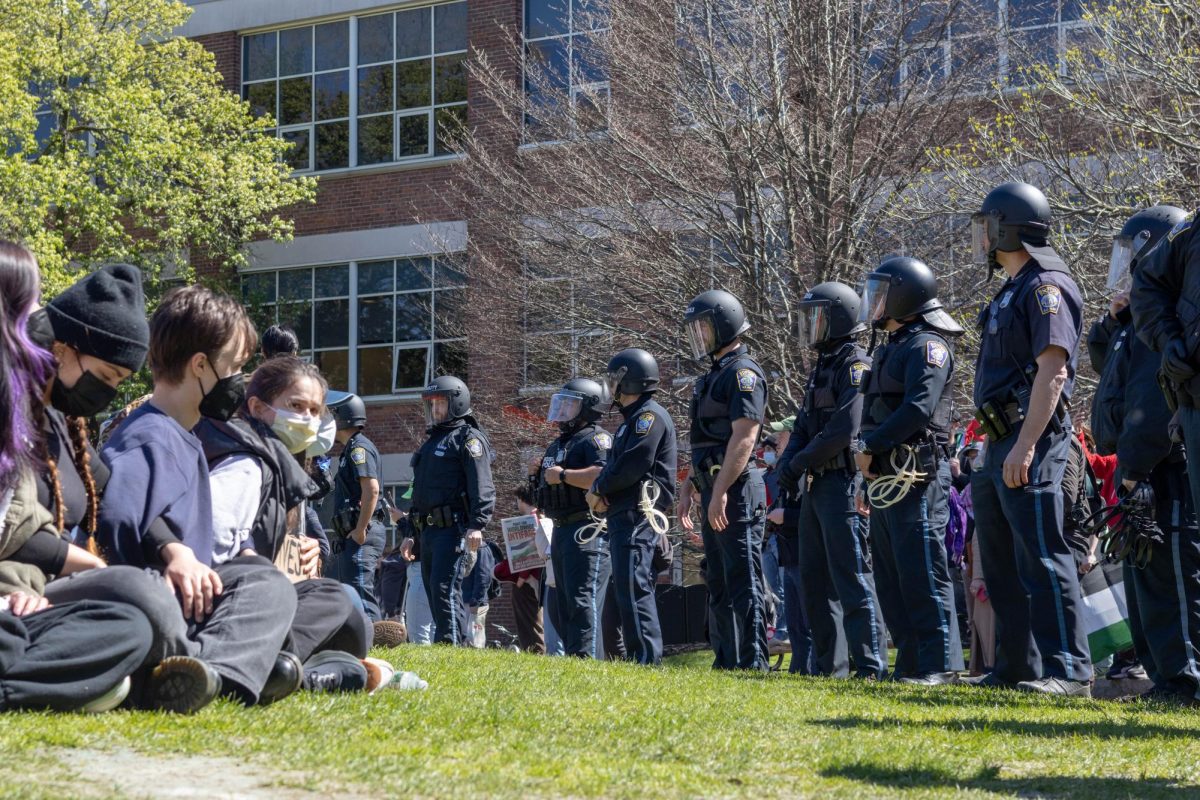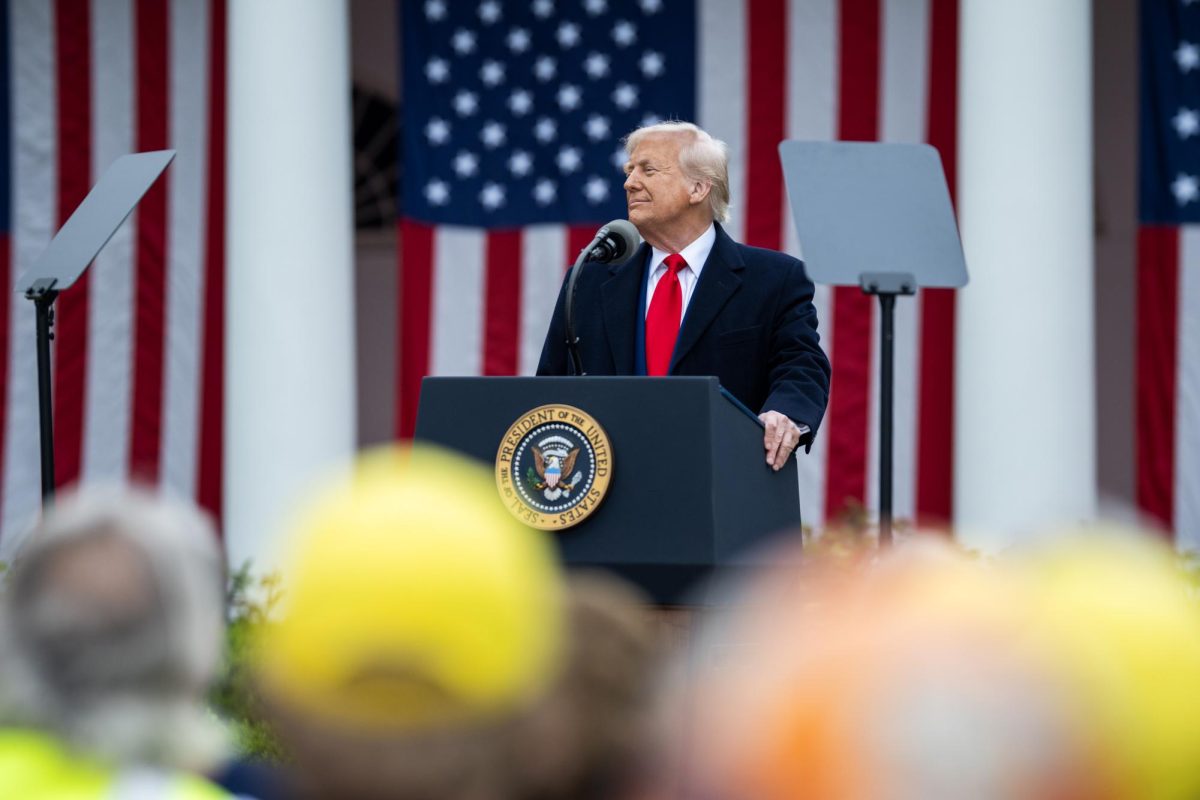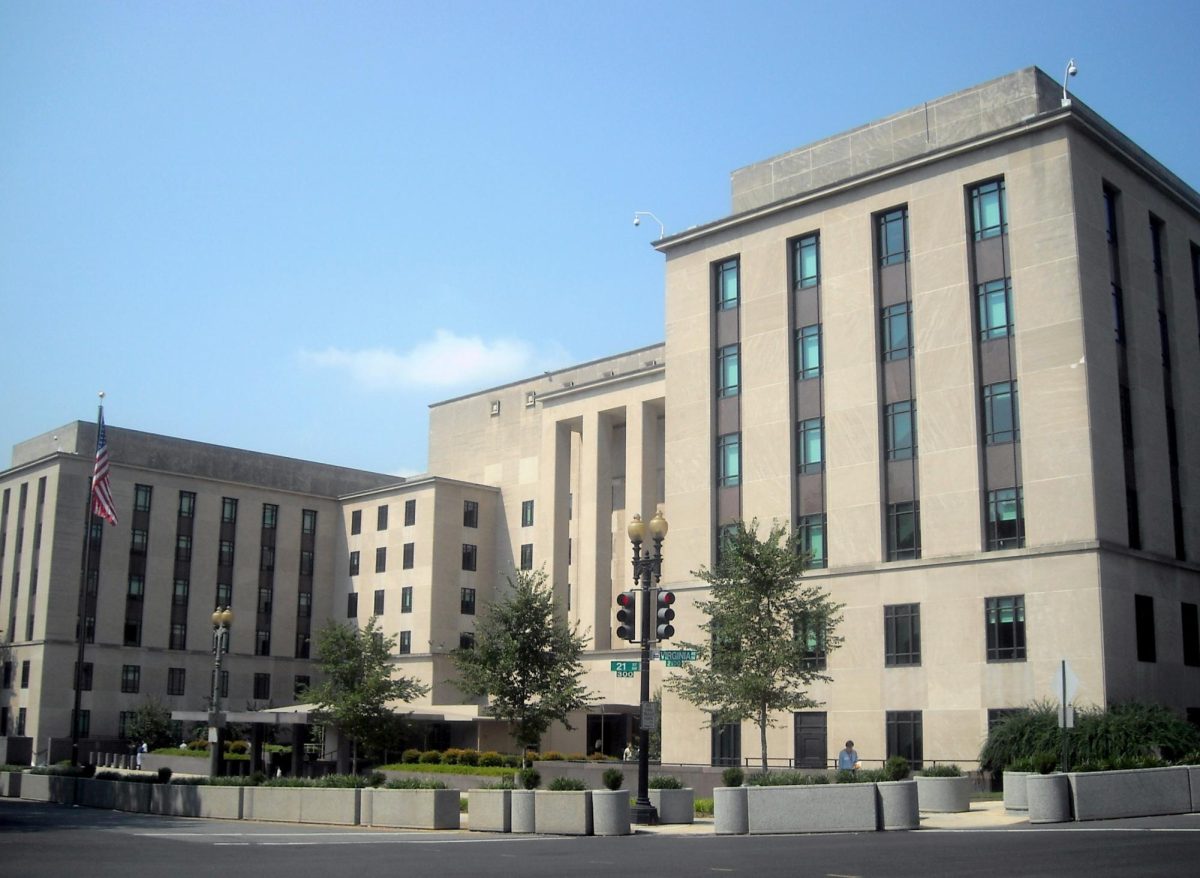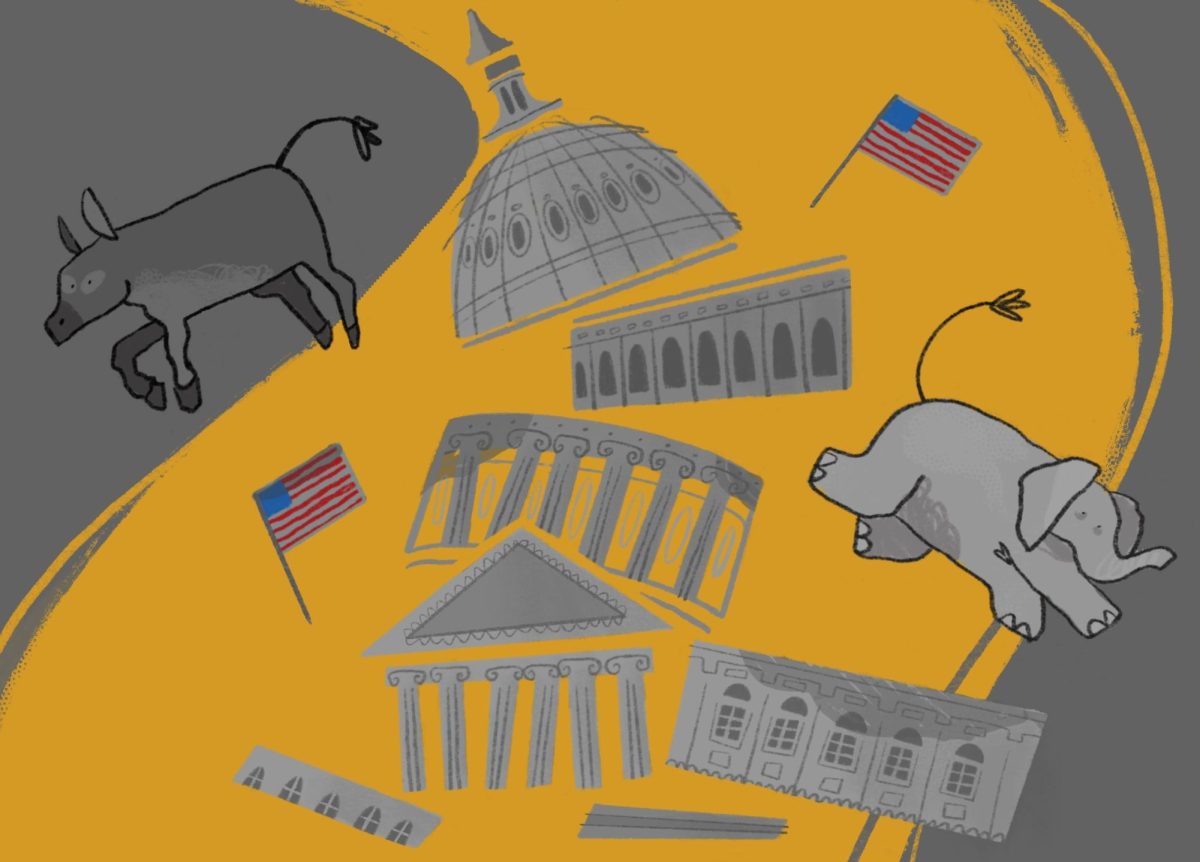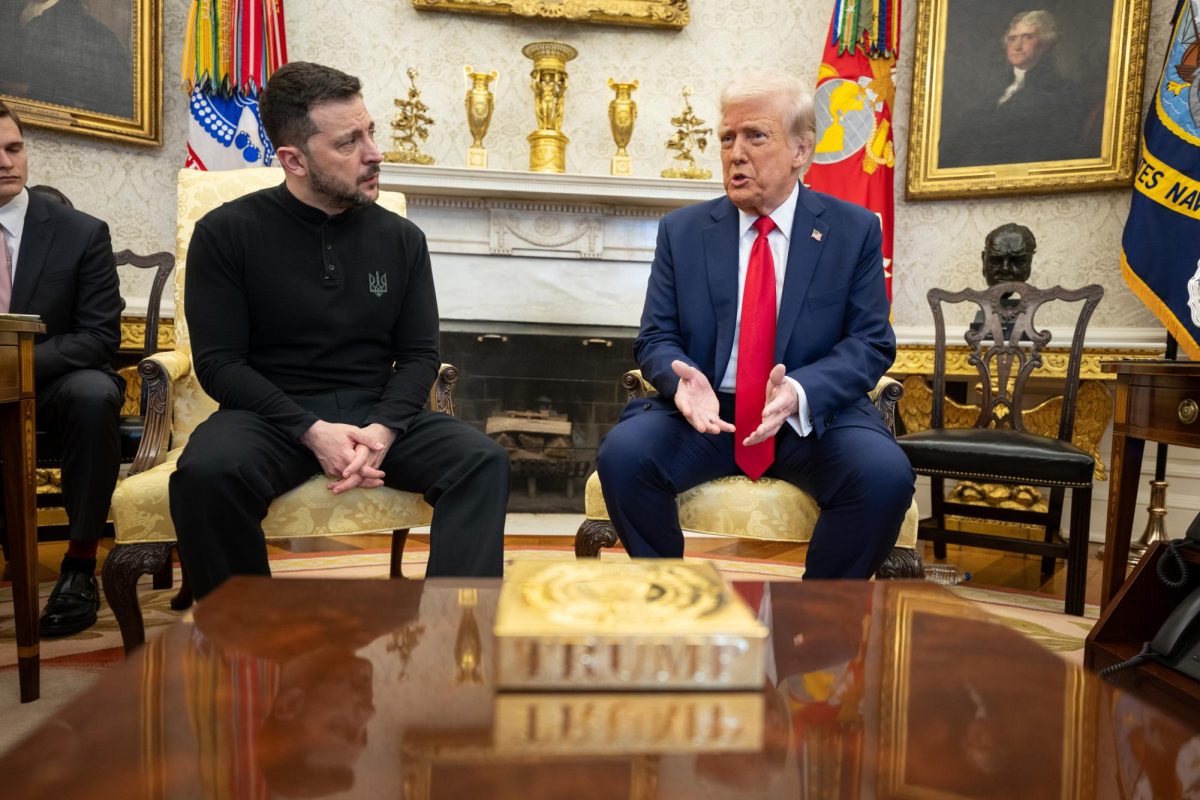Political echo chambers have begun to run rampant in American political discourse.
By definition, an echo chamber is an environment where someone only encounters information and opinions that are similar or the same as their own. This term has become popular due to the rapid increase in the number of people getting information and news from social media. Since social media utilizes personalized algorithms, it is easy to fall into a rabbit hole of extremely polarized ideals.
When stuck in an echo chamber, it is also easy to look down upon — and sometimes even hate — those who are outside of your echo chamber. No matter how right you may think you are about your opinions, the only true way to grow and expand your knowledge is to step outside your personalized political bubble and discuss politics with those you disagree with.
So how do we escape these echo chambers and herd thinking? The answer is by facilitating difficult political discussions.
These difficult discussions are pertinent to continue having a pluralist society. A pluralistic society is made up of many different religions, beliefs, and ethnicities all coexisting together while maintaining their ideals. A key aspect of pluralism is political discussion, which allows these opinions to be explored.
It is unlikely that we can ever truly change a person’s mind about something we disagree on. Still, in facilitating a civil discussion, both parties are likely to gain mutual respect for one another after respectfully describing and explaining their different perspectives.
The goal of political discussion should not be to change whoever’s mind you’re talking to but rather to understand why someone feels the way they do. While it is easy to write off people as “crazy” or “argumentative,” if we sit down and genuinely try to determine why people feel the way they do, we may learn something from them and gain a deeper understanding of our own opinions.
While it is easy to talk about these discussions in theory, there are barriers to political discussion which make it harder to facilitate conversations in practice.
One reason people find political discussions difficult is due to the discomfort that they initiate. In our society, discussing politics has become almost taboo, with many people shying away from conversations surrounding politics. Whether it is a holiday conversation with extended family, a discussion about political candidates with friends, or even a discussion in the classroom, it is easy to get caught up and feel immense anxiety and heated emotions in these conversations.
Another way Americans tend to avoid political discussion is due to a need for more information surrounding pertinent topics. A lot of Americans feel like they do not want to engage in political discussions because they feel uninformed — they claim not to “pay attention” to politics — or are genuinely afraid of conflict and creating unwanted tensions between friends and family. All of these fears are valid. Discussing politics with someone you know holds different values than you can be extremely scary. There is no way to know how someone will handle an opinionated political discussion. While scary and uncomfortable, this is how we grow as a society and take steps to lessen the political divide.
Many people are not only afraid to talk politics with those they disagree with but also to discuss politics in general. This is one of the reasons that people stay inside their comfort zones and do not seek challenges from their points of view. Ask yourself: When was the last time you researched the beliefs of another religion or attempted to understand a different group’s position?
Finally, political extremism is another way that blocks discourse. Extremism in politics refers to the extent to which individuals are polarized into left or right-wing groups and their subsequent outlook on society. Political extremism on both sides of the ideological spectrum can cause people to react in severe ways to different social and political events that they hear about.
Extremism is currently at an all-time high, with immense polarization being spread through political party leaders, social media, and more. This chaos-inducing conflict is the main killer of pluralism and open political discussion.
When people think of politics in recent years, they think mainly of political extremism and associate this behavior with all of politics. This is a huge turn-off for people who do not feel this way, making maintaining political discussions even scarier. Whether you look at political extremists on the left or the right, you will always find individuals manipulating people’s emotions to gain power.
Moving past discomfort and political extremism is hard. While this is true, keeping yourself informed about today’s issues and going out of your way to discuss politics with someone you disagree with can help you grow and empathize with your fellow citizens.
Look for news articles on topics that go beyond “buzzword politics.” Research policy and acquaint yourself with the agenda of your local policymakers. Start small and ask a peer how they feel about their local news. When you broaden your scope of knowledge about a topic, you will gain confidence in your stance and begin to question news that focuses on extremist stances.
Politics can cause family ties to break and friendships to end, but if you are looking to learn something new from the people you care most about, then it could be a good idea to bring up politics at your next family gathering.
Ava Vitiello is a second-year political science major. She can be reached at vitiello.a@northeastern.edu.
The Huntington News is dedicated to serving the Northeastern University community with original, professional reporting and creating an environment in which student journalists can learn from one another. Support an independent, free press at Northeastern University with your donation today.



